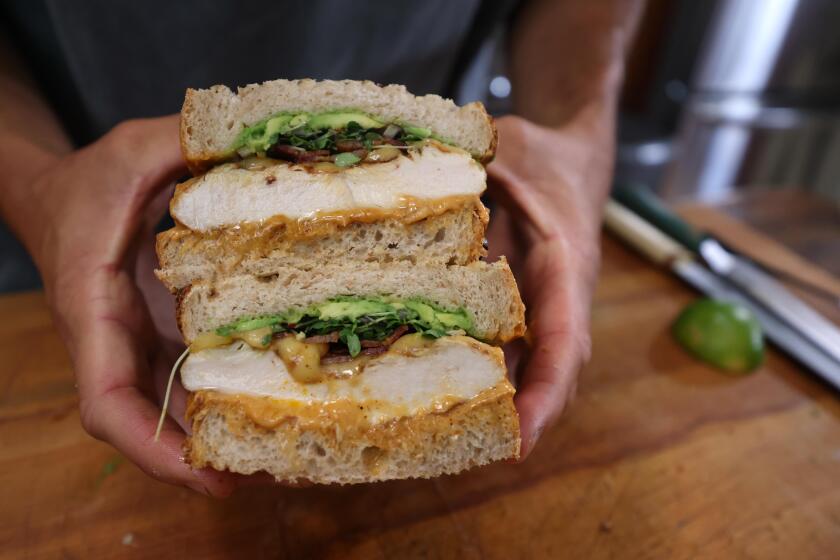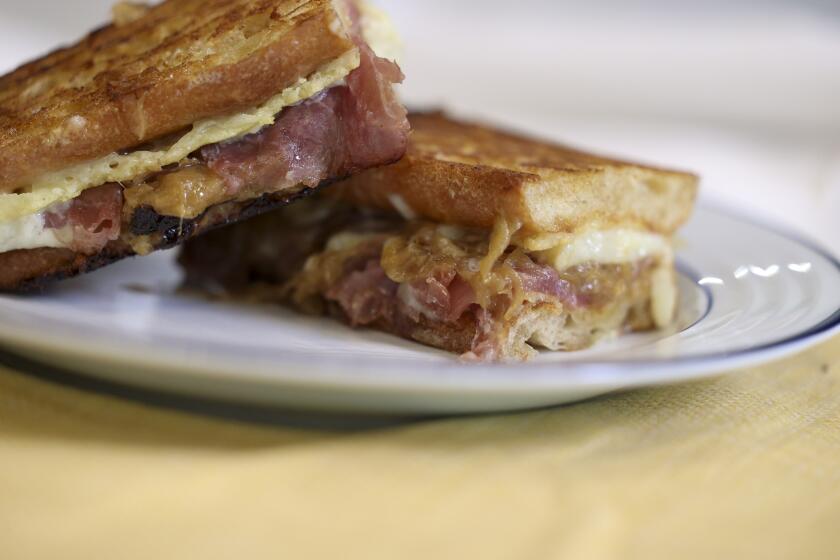Coke May Not Be It if Some UCLA Activists Get Their Way
Coca-Cola could be banned from UCLA eateries if student anti-apartheid activists have their way.
A group of student government leaders says Associated Students of UCLA, which runs most of the university’s stores and restaurants, should not do business with a company that operates 40 bottling and canning plants in South Africa and pays taxes to the country’s apartheid government.
“By no means am I saying they’re one of the worst companies (in South Africa),” said Ronnald Campbell, a member of the Associated Students board of directors. “But you can’t play in the water and not get muddy.”
The 24-year-old international business major is spearheading the effort to ban campus Coke sales. Campbell, chairman of the board’s ethics committee, said he got the idea last spring when he discovered that the company’s vending contract was up for renewal this fall.
Campbell and Undergraduate President Ron Taylor favor canceling the contract and hiring a soft drink supplier that has no ties to South Africa. Campbell said he would like the contract to go to a firm that is run by blacks.
Five years ago, the board of directors voted to divest Associated Students funds from all banks doing business with the apartheid government.
The board has no official policy regarding vendors’ dealings with South Africa but is considering a tentative set of guidelines on what constitutes ethical business practices there. A subcommittee has determined that Coca-Cola meets those criteria.
Jason Reed, Associated Students executive director, approves vending contracts unless a board member requests a full board review. Campbell said he may put Coca-Cola’s contract renewal on a future agenda.
But Campbell admitted that banning Coke from UCLA would be difficult, at best. “It’s kind of 50-50,” he said. “I don’t know if we want to ruin the association’s sales right now.”
Coke annually accounts for 10% of Associated Students’ food sales, Reed said. Last year, campus restaurants sold 1,489,306 cups of Coke, and the campus food store sold 220,000 cans.
“Coke seems for UCLA people to be the drink of preference,” he said. “Hundreds of thousands of dollars would be impacted (if the contract were canceled). I would guess that many of the products (sold by Associated Students) are owned by companies doing business in South Africa.
“I don’t think we have the right to dictate very limited selections based on criteria not directly related to UCLA.”
Offer a Choice
Campbell said, however, that the board should focus on social issues as well as on financial considerations. “Are we talking about a syrup here or about lives?” he asked.
Scot Spicer, a graduate representative on the board, said he favors offering students a choice--Coca-Cola as well as soft drinks from a company that has no ties to South Africa. “I tend to favor providing products that students prefer,” he said. “And it’s very hard for me to say we’re not going to have products of one company.”
Spicer added that Coca-Cola is “probably the most responsible” of the companies that have ties to South Africa and which have contracts with Associated Students.
According to Brant Davis, manager of corporate communications at Coca-Cola’s headquarters in Atlanta, the company employs blacks at every level of its South Africa operations. He said the company helps black employees obtain urban residence rights and educational and vocational training.
The company also contributes to scholarship funds and sponsors a public-interest law group dedicated to challenging some of the government’s discriminatory laws, he said.
“When majority rule comes to South Africa,” he said, “it is our belief that the government that is set up under majority rule will have a great chance of surviving and all South Africa will be in better shape if there is a well-educated class of black managers and businessmen. The Coca-Cola Co. is deeply involved in building that class.”
According to a company statement, Coca-Cola’s departure from South Africa “would be more harmful to South Africans than to our shareholders.”
Campbell, however, said the main reason Coke operates facilities in South Africa is because of the availability of cheap labor.
“If (the financial impact of Coca-Cola’s departure from South Africa) is so minimal, what’s the big hoopla about?” he asked. “For a profit-making corporation, they would not be spending money on something that is minimal.”
The board will invite a Coca-Cola representative to answer members’ questions at a special meeting in the next three weeks.
More to Read
Eat your way across L.A.
Get our weekly Tasting Notes newsletter for reviews, news and more.
You may occasionally receive promotional content from the Los Angeles Times.










